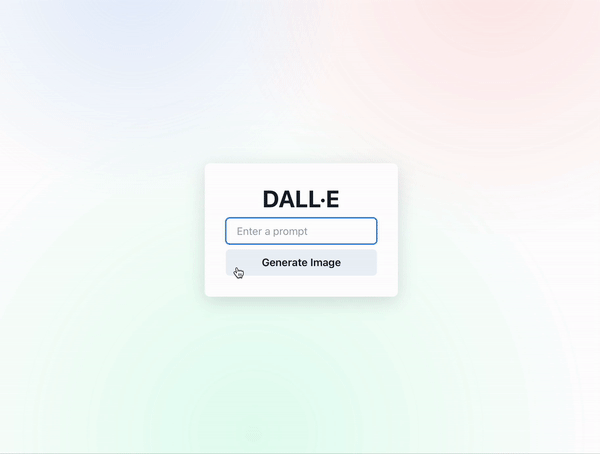5 Modern Python Libraries You Must Know in 2025! 🚀
I have discovered these few game changer modern set of libraries that you should must know in 2025.

LEVEL UP YOUR PYTHON SKILLS WITH THESE
5 Modern Python Libraries You Must Know in 2025! 🚀
Hey Everyone, as we know python has a vast set of amazing libraries and many of them are really a game changer.
So, i have discovered these 5 few game changer modern set of libraries that you should must know if you want to stay ahead in 2025.

1. Reflex — Build Full-Stack Web Apps in Pure Python
Reflex is amazing library allows you to build full-stack web applications using only Python — no JavaScript required!
Docs : https://github.com/reflex-dev/reflex
Installation
pip install reflexExample
You can use these command to create a reflex project:
mkdir my_app_name
cd my_app_name
reflex initLet’s create a simple app :
import reflex as rx
import openai
openai_client = openai.OpenAI()
# Backend code
class State(rx.State):
"""The app state."""
prompt = ""
image_url = ""
processing = False
complete = False
def get_image(self):
"""Get the image from the prompt."""
if self.prompt == "":
return rx.window_alert("Prompt Empty")
self.processing, self.complete = True, False
yield
response = openai_client.images.generate(
prompt=self.prompt, n=1, size="1024x1024"
)
self.image_url = response.data[0].url
self.processing, self.complete = False, True
# Frontend code
def index():
return rx.center(
rx.vstack(
rx.heading("DALL-E", font_size="1.5em"),
rx.input(
placeholder="Enter a prompt..",
on_blur=State.set_prompt,
width="25em",
),
rx.button(
"Generate Image",
on_click=State.get_image,
width="25em",
loading=State.processing
),
rx.cond(
State.complete,
rx.image(src=State.image_url, width="20em"),
),
align="center",
),
width="100%",
height="100vh",
)
# Add state and page to the app.
app = rx.App()
app.add_page(index, title="Reflex:DALL-E")Hit this command to run development server :
reflex runYou should see your app running at http://localhost:3000.

2. FastStream — The Future of Message Queue Processing
FastStream is a modern async messaging framework built for RabbitMQ, Kafka, and NATS, making distributed event-driven systems easier.
Docs : https://github.com/airtai/faststream
Installation
pip install faststream[kafka]
# or
pip install faststream[rabbit]
# or
pip install faststream[nats]
# or
pip install faststream[redis]Example
Here is an example Python app using FastStream that consumes data from an incoming data stream and outputs the data to another one:
from faststream import FastStream
from faststream.kafka import KafkaBroker
# from faststream.rabbit import RabbitBroker
# from faststream.nats import NatsBroker
# from faststream.redis import RedisBroker
broker = KafkaBroker("localhost:9092")
# broker = RabbitBroker("amqp://guest:guest@localhost:5672/")
# broker = NatsBroker("nats://localhost:4222/")
# broker = RedisBroker("redis://localhost:6379/")
app = FastStream(broker)
@broker.subscriber("in")
@broker.publisher("out")
async def handle_msg(user: str, user_id: int) -> str:
return f"User: {user_id} - {user} registered"Running the application :
faststream run basic:app --reload3. Beanie — Async ODM for MongoDB
Beanie provides a modern, async-first Object Document Mapper (ODM) for MongoDB, making it easy to work with NoSQL databases.
Docs : https://github.com/BeanieODM/beanie
Installation
pip install beanieExample
import asyncio
from typing import Optional
from motor.motor_asyncio import AsyncIOMotorClient
from pydantic import BaseModel
from beanie import Document, Indexed, init_beanie
class Category(BaseModel):
name: str
description: str
class Product(Document):
name: str # You can use normal types just like in pydantic
description: Optional[str] = None
price: Indexed(float) # You can also specify that a field should correspond to an index
category: Category # You can include pydantic models as well
# This is an asynchronous example, so we will access it from an async function
async def example():
# Beanie uses Motor async client under the hood
client = AsyncIOMotorClient("mongodb://user:pass@host:27017")
# Initialize beanie with the Product document class
await init_beanie(database=client.db_name, document_models=[Product])
chocolate = Category(name="Chocolate", description="A preparation of roasted and ground cacao seeds.")
# Beanie documents work just like pydantic models
tonybar = Product(name="Tony's", price=5.95, category=chocolate)
# And can be inserted into the database
await tonybar.insert()
# You can find documents with pythonic syntax
product = await Product.find_one(Product.price < 10)
# And update them
await product.set({Product.name:"Gold bar"})
if __name__ == "__main__":
asyncio.run(example())4. Haystack — Build Smart AI Search & Q&A Systems
Haystack enables real-time AI-powered search and question-answering systems, making it a must-have for LLM-based apps.
Docs : https://docs.haystack.deepset.ai/docs/get_started
Installation
pip install haystack-aiExample
from haystack import Pipeline, Document
from haystack.utils import Secret
from haystack.document_stores.in_memory import InMemoryDocumentStore
from haystack.components.retrievers.in_memory import InMemoryBM25Retriever
from haystack.components.generators import OpenAIGenerator
from haystack.components.builders.prompt_builder import PromptBuilder
# Write documents to InMemoryDocumentStore
document_store = InMemoryDocumentStore()
document_store.write_documents([
Document(content="My name is Jean and I live in Paris."),
Document(content="My name is Mark and I live in Berlin."),
Document(content="My name is Giorgio and I live in Rome.")
])
# Build a RAG pipeline
prompt_template = """
Given these documents, answer the question.
Documents:
{% for doc in documents %}
{{ doc.content }}
{% endfor %}
Question: {{question}}
Answer:
"""
retriever = InMemoryBM25Retriever(document_store=document_store)
prompt_builder = PromptBuilder(template=prompt_template)
llm = OpenAIGenerator(api_key=Secret.from_token(api_key))
rag_pipeline = Pipeline()
rag_pipeline.add_component("retriever", retriever)
rag_pipeline.add_component("prompt_builder", prompt_builder)
rag_pipeline.add_component("llm", llm)
rag_pipeline.connect("retriever", "prompt_builder.documents")
rag_pipeline.connect("prompt_builder", "llm")
# Ask a question
question = "Who lives in Paris?"
results = rag_pipeline.run(
{
"retriever": {"query": question},
"prompt_builder": {"question": question},
}
)
print(results["llm"]["replies"])5. Litestar — A Next-Gen API Framework
Litestar is a modern, async-first alternative to FastAPI, offering speed, flexibility, and powerful dependency injection.
Docs : https://docs.litestar.dev/latest/
Installation
pip install litestarExample
First, create a file named app.py with the following code:
# app.py
from litestar import Litestar, get
@get("/")
async def index() -> str:
return "Hello, world!"
@get("/user/{book_id:int}")
async def get_user(user_id: int) -> dict[str, int]:
return {"user_id": user_id}
app = Litestar([index, get_user])Then, run the following command:
litestar run
# Or you can run Uvicorn directly:
uvicorn app:app --reloadYou can now visit http://localhost:8000/ and http://localhost:8000/user/1 in your browser and you should see the responses of your two endpoints:
"Hello, world!"and
{"user_id": 1}Final Thoughts
These 5 modern Python libraries will help you build faster, smarter, and more scalable applications in 2025.
Which library are you most excited to try? Let me know in the comments!





